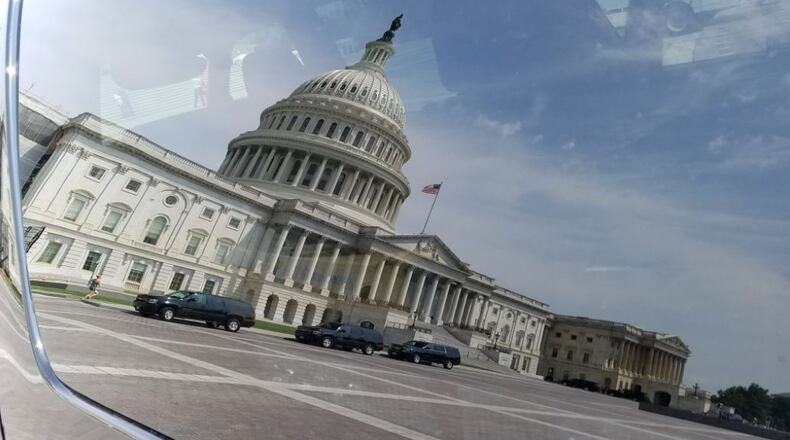Following through on a prime 2016 campaign pledge from President Donald Trump, the House on Thursday approved a $1.6 billion down payment to start building a new border barriers in Texas and California, adding that money to a broader $788 billion package containing four of the twelve bills that fund operations for the federal government in 2018.
"The best thing we could do as a good neighbor to Mexico, is to build a wall where it is needed, as President Trump has talked about," said Rep. Louis Gohmert (R-TX).
"When you go to various portions of the border now, it is a single strand of wire," said Rep. Andy Biggs (R-AZ). "A border wall is important, it's imperative."
The plan would pay for 60 miles of a new barrier - both in the form of a wall and a levee. All of that would be in Texas. There would also be 14 miles of new fencing in California.
"Some things are working on the border are working," argued Rep. Ted Poe (R-TX). "And one of those things that is working is a wall in the big cities."
Democrats denounced the plan, as they pointed out that Mr. Trump's campaign pledge of making Mexico pay for the wall is not happening.
"Mexico is not paying for it, nor would anybody in their right mind think that Mexico is ever going to pay for it," said Rep. Darren Soto (D-FL).
"Not many of us believed that," said Rep. Louise Slaughter (D-NY).
"This money should be used to give the American people real security, not politically motivated gimmicks," said Rep. Stephanie Murphy (D-FL).
There was no direct vote on the $1.6 billion in border wall money in the House, as Republican leaders used the rules to prevent that from happening, worried that there would not be a majority in favor of such funding.
Two of the five House Republicans who voted against bringing the $1.6 billion in wall funding up for a vote represent districts along large swaths of the border - Rep. Will Hurd (R-TX), and Rep. Steve Pearce (R-NM).
Hurd has argued for a high-tech approach to the border, with sensors, radar, drones and cameras, instead of a wall.
"We can’t double down on a Third Century approach to solve 21st Century problems if we want a viable long-term solution," Hurd said.
The border wall funding was included along with spending for four other areas of government - for the U.S. military, the Legislative Branch, energy and water programs, as well as spending for veterans programs.
Eight other funding bills - including spending on the Department of Homeland Security - are not going to be voted on in the House before lawmakers leave Capitol Hill for a summer break that extends until Labor Day.
About the Author
The Latest
Featured



